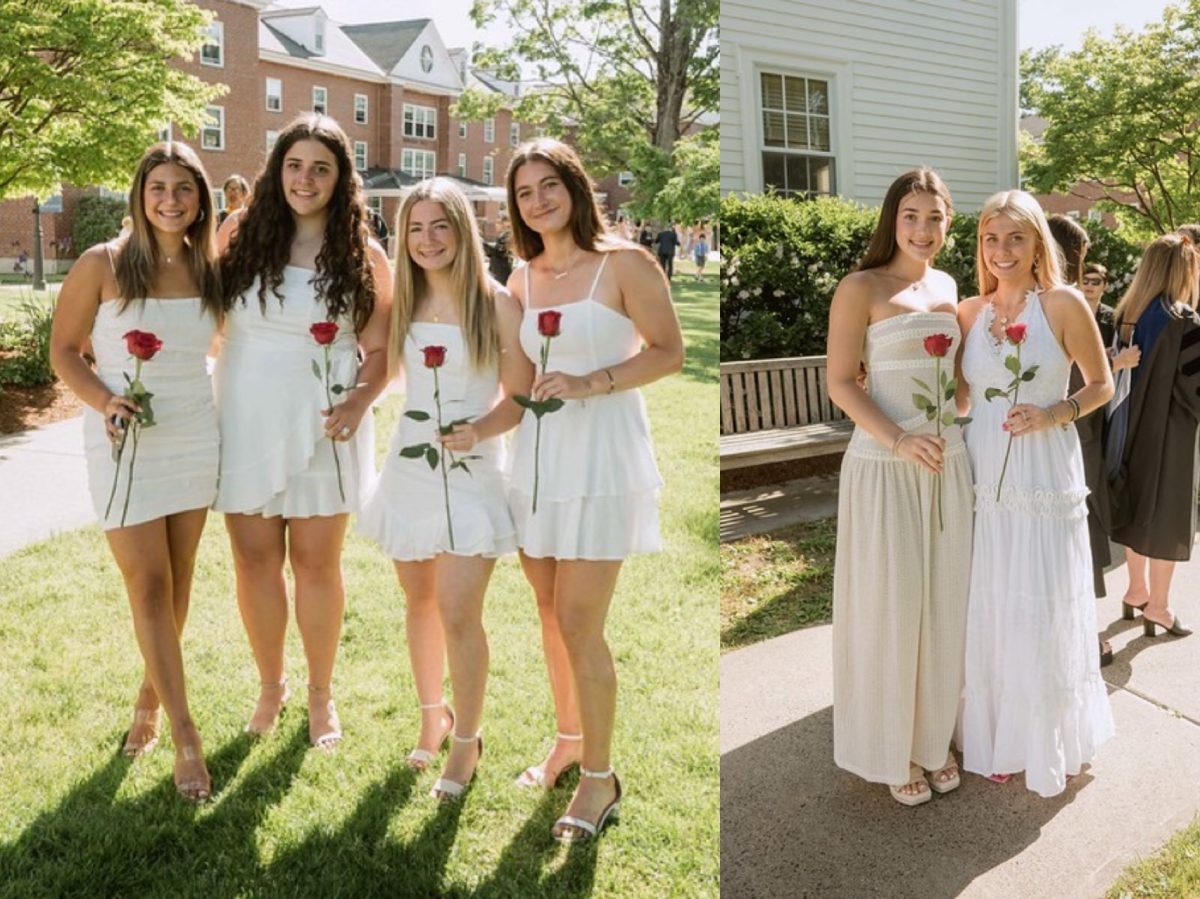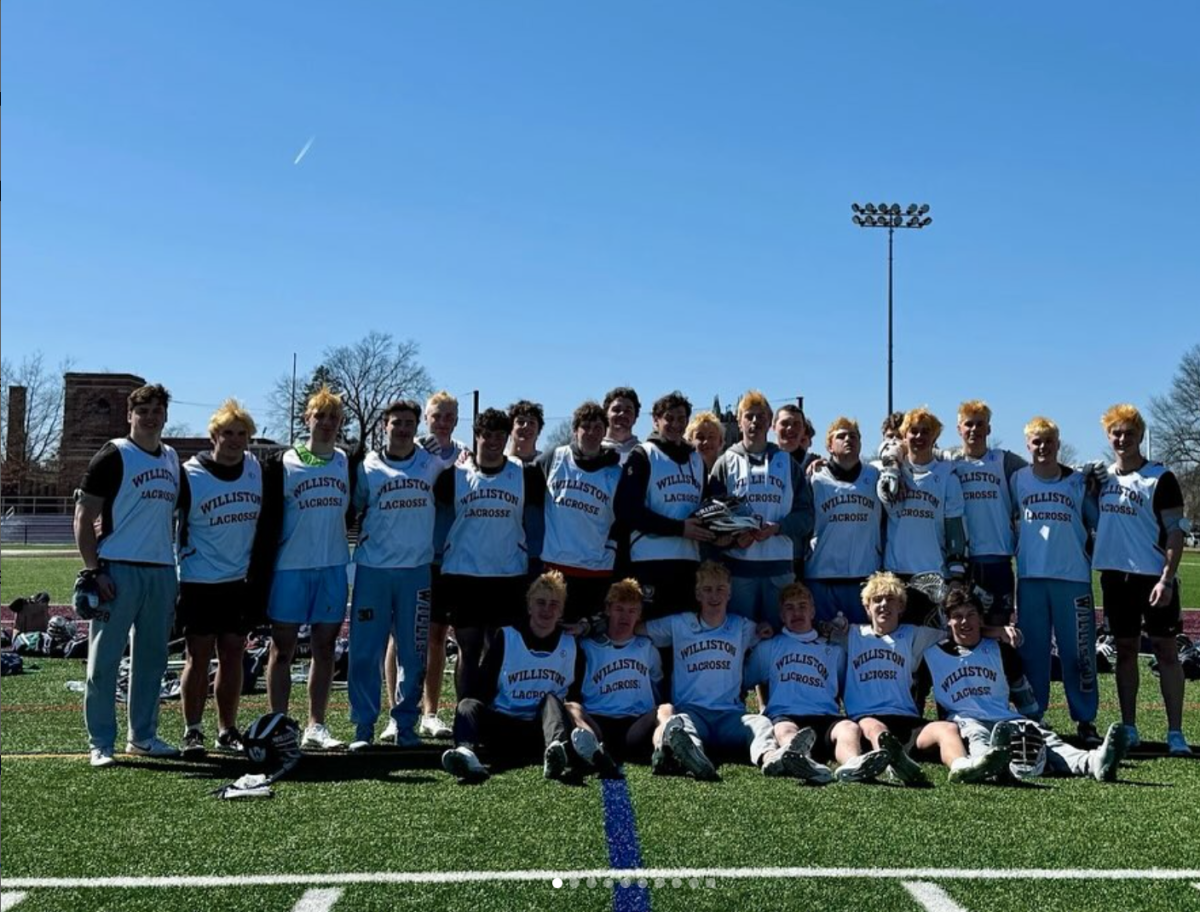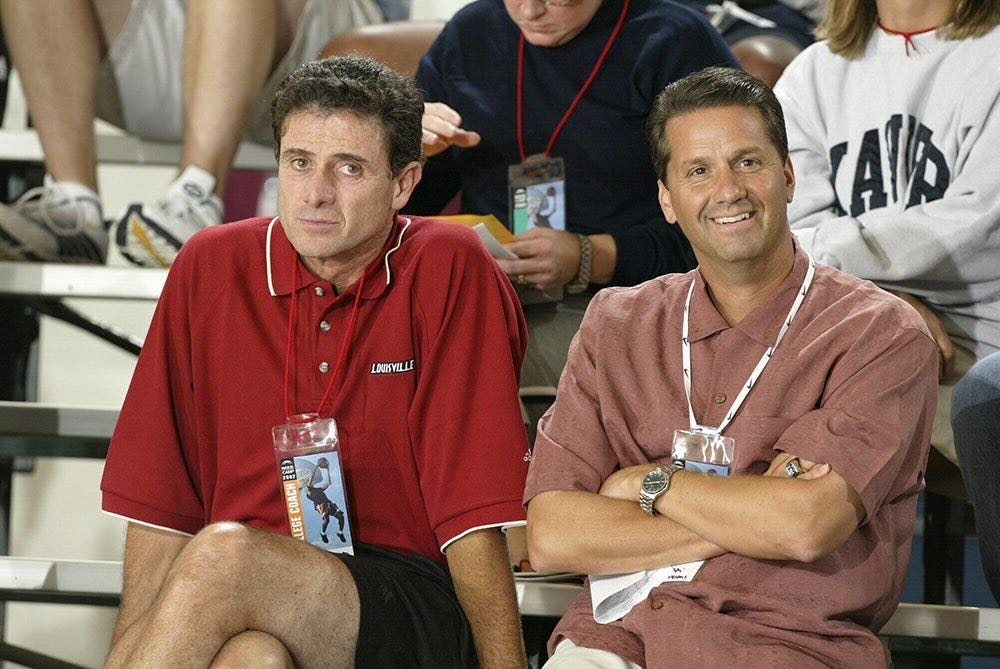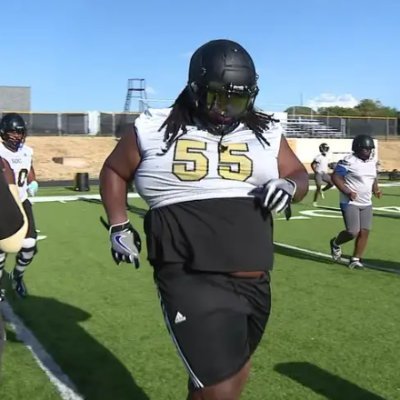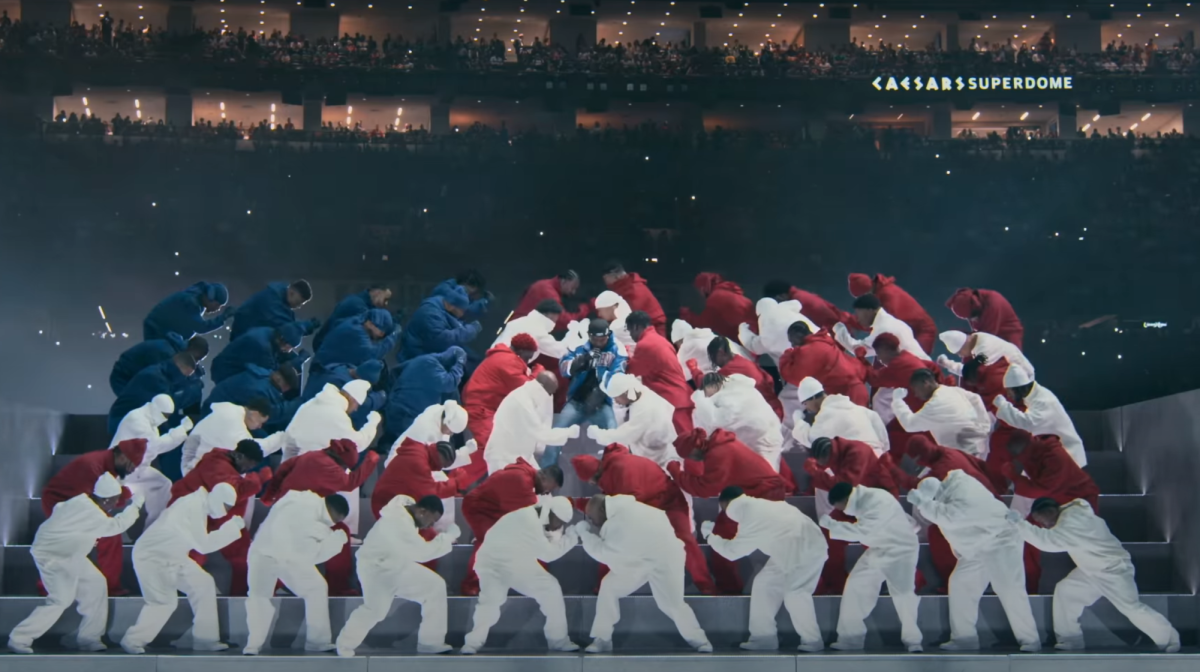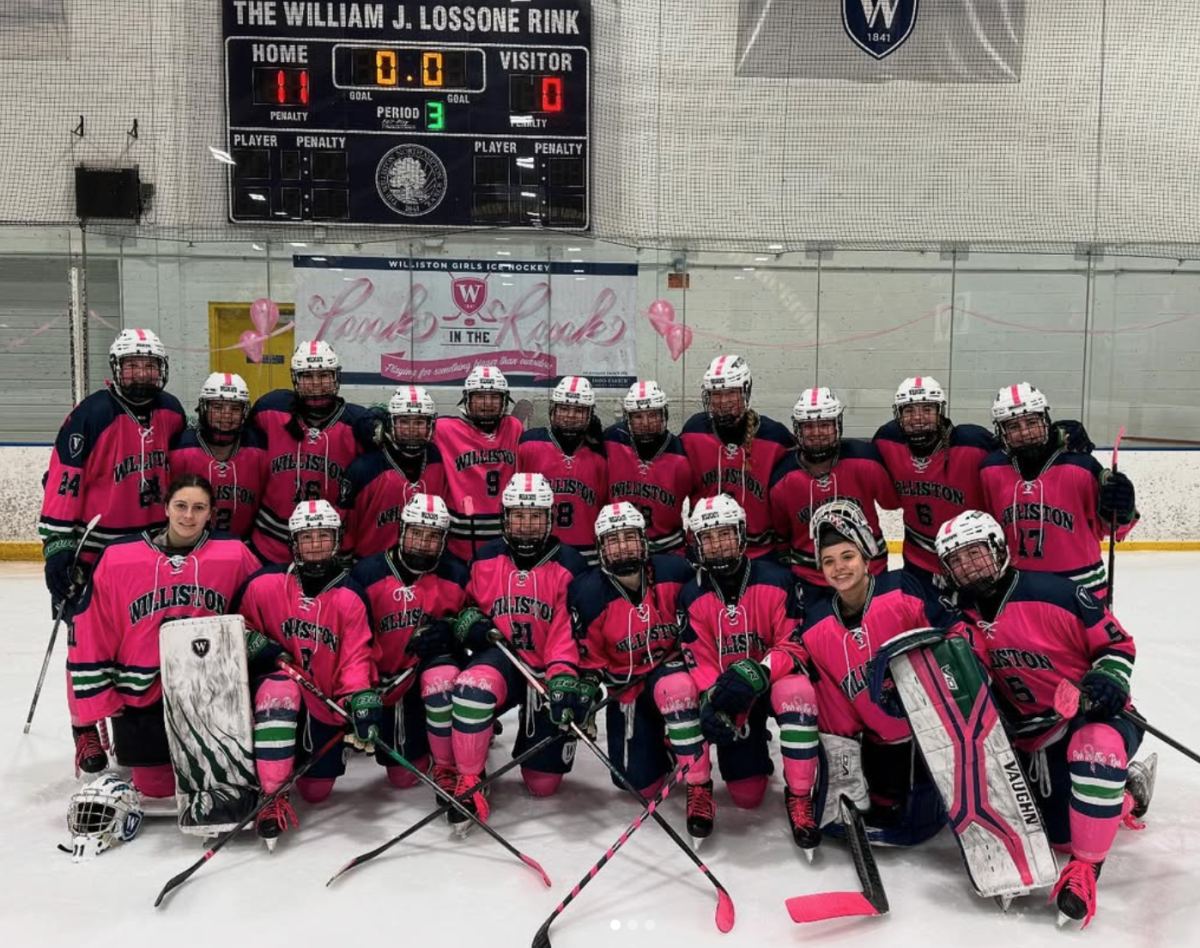The recruitment process has a negative impact on student athletes’ mental health and relationship with sports.
The recruitment process has gotten more competitive in the last few years in all sports. It is very cutthroat and hard for teenagers to handle. This is a very mentally-challenging time for many young athletes balancing school, playing their sport, and trying to figure out where they will be attending college in the future. Adding a stressful and often long recruitment process takes tolls on athletes’ mental health.
The history of the recruitment process is not easy and glamourous. Many Division 1 athletic programs are restricted due to contact dates, meaning they can not reach out to an athlete before the date for their graduating class.
For women’s and men’s lacrosse, the date is Sept. 1 of a student’s junior year of high school. Women’s hockey is July 15 of junior year. But women’s hockey players can not official visit a Division 1 school’s campus until Aug. 1 of junior year, whereas men’s college hockey is Jan. 1 of the recruit’s sophomore year.
Women college basketball’s date is June 1 of sophomore year.
Most sports have dates now to ensure the athlete is mature and has a sense of what they want in the future. The lead up to the date and the opening for the athletes is one of the most stressful times for them. It helps student athletes to have a large support system — friends, family, coaches, teachers — who can guide them through this process.
Charlie Lonergan, the Head Girls Varsity Lacrosse coach at Williston and a member of the College Advising staff, is in a unique position to get a behind-the-scenes look at the college process for student athletes.
Lonergan thinks the process takes a toll on students athletes mental health.
“It is inherently stressful because it requires hard work, and much of the outcome is out of your control,” he said. “Being successfully recruited is a big goal that requires a lot of work, and that’s okay. It’s also true that the outcome may not be want the individual student-athlete wants. While that is disappointing, it is also okay.”
Lonergan said this process is very much like real life, disappointment included.
“Stress comes from the fact it is important to the individual, and unfortunately, we don’t always get what we want,” he said. “That possibility is what makes it stressful. It’s also what makes it very much like real life.”
College coaches may also not communicate in the most productive ways, sometimes falling out of contact entirely — “ghosting,” Lonergan said — after being in touch. This can put student athletes on edge.
Lonergan thinks it is getting harder and harder for student athletes to get recruited.
“Overall, in my opinion, the bottom line with all of this is that the process is getting worse and worse for high school student-athletes,” he said. “The NCAA continues to make rules that squeeze high school student-athletes out of college roster space, so it is getting more and more competitive, which truly means less space for high school kids. Whether it was the Covid extra year, the free and easy transfer portal, soon to be implemented Division 1 roster caps, juco participation no longer counting towards NCAA eligibility, the prospect of the NCAA increasing eligibility to five years (from four), or more, a larger number of participating high school student-athletes continue to fight for less and less opportunity.”
“And while this is true, college coaches continue to prove that they would prefer older kids: reclass, PG, juco, transfers, etc,” he added. “It is creating more and more stress on the student-athlete and their families, which in turn creates the very real possibility of having a negative impact on a student-athlete’s mental health and wellness.”
Students athletes parent’s could also put major pressure on their kids. They spend thousands of dollars on club athletics and travel, which makes for an unhealthy dynamic if the child loses interest in the sport.
Jayme Cerasuolo, a junior boarding student on the Girls Varsity Lacrosse team, recently went through the recruitment process. As a junior, contact for Division 1 schools opened this past September, allowing them to official talk to Jayme. The process was not easy for her.
“My process was extremely stressful and overwhelming but also exciting,” she said
September 1 is the big day for women’s lacrosse and Jayme felt the pressure leading up to the day.
” There is so much pressure … [and] when it finally comes there is a moment of relief and excitement but only if you get calls and text from the schools you hoped for,” she said.
Jayme struggled with the summer leading up to Sept. 1.
” I think the process affected me mentally very badly,” she said. “Last high school season and summer season before every game I would be so nervous I could barely function with all the pressure of having to play a ‘perfect’ game in order to be recruited.”
The constant pressure takes the love of the sport away for many student athletes, making them question their decision to continue playing at the next level.
“It takes away a lot of your love for your sport when you know your entire future is on the line and your every move is being heavily watched,” Jayme said.
Thorough the whole process, Jayme always had support.
“My biggest support in this process was my family and teammates going through the same thing,” she said. “Every other day I would be driving or flying to a new state to play and my parents would always be there with me. At times I would be unbearable because I was so stressed about playing and my parents never got sick of me or annoyed.”
Jayme traveled all over the East coast for lacrosse tournaments this past summer, to states like Maryland, Pennsylvania, and New Jersey. She went to many colleges over the summer for prospect days to schools including UConn, Penn State, and Clemson.
Jayme also had teammates to talk and help her through the process.
“It was also really comforting to have teammates going through the same things like Kat [Mayer] and Scarlette [Graybill] and knowing I could always talk to them about it and rant and they would understand,” she said.
[Editor’s note: Kat is the author of this article and on the same lacrosse team as Jayme and Scarlette.]
With support, Jayme made it through the stressful and draining recruitment process and has committed to East Carolina University to continue her athletic and academic career.
Scarlette Graybill is a junior boarder who is also on the Girls Varsity Lacrosse team. She has committed to play lacrosse at Davidson College. Her process was stressful but less so than others process.
“Something that I struggled with mentally through the recruiting process was during the summer for prospects and showcases,” she said. “I felt a lot of performance anxiety and had trouble staying positive when I messed in a game. I felt that the coaches wanted the girls who were consistent, and constant goal scorers, and when I felt I didn’t play up to those expectations as an attacker, I beat myself up pretty hard.”
Scarlett said she was affected more mentally from the pressure she put on herself.
Performance anxiety is the fear of performing in front of an audience or in high pressure situations is very common in high school athletes due to the high pressure of being recruited to play at the next level. If you dread the thought of getting up in front of a group of people and performing, you are not alone. Millions of people suffer from performance anxiety, according to WebMD.
Scarlette’s biggest support was her mom.
“She helped schedule and find majority of my prospects and was always willing to help look over my emails I was sending,” she said. “She wanted this just as bad as I did, so having someone who motivated me to email and workout etc. was super awesome and I am very grateful.”
Academics are important to Scarlette; she kept that in mind while looking at schools.
“I really wanted both academics and athletics when looking at colleges, so that’s why Davidson was the perfect fit for me,” Scarlette said.
Liv Ferebee, a senior boarder from Lake Placid, N.Y. on the Girl Varsity Hockey team, has committed to Cornell University to continue her athletic and academic career. Liv’s recruitment process was very long and stressful.
“As a goalie, it is tough to get recruited given that college hockey teams usually roster around 3-4 goalies,” Liv explained. “So, the chance of a team even needing a goalie is low. That whole idea made me nervous since I had high expectations and dreams for myself. I continued to work hard and trust the process.”
Liv felt huge impacts mentally while going through this process.
“This process greatly affected my mental wellness,” she said. “Social media had a huge impact on my confidence and trust in myself. I saw lots of my friends and teammates committing soon after they were allowed to and there I was receiving one call from a school that I was not even interested in.”
Social media has played huge roles in the recruitment process over the last few years. Coaches are allowed to follow you, and you can post highlights; its another effective way to be seen. Unfortunate, Liv has felt the pressure that social media puts on young athletes.
Liv struggled to see her friends and teammates committing to big name Division 1 on social media like Cornell, Holy Cross, Harvard, and University of Wisconsin.
The women’s hockey contact date is June 15 of the recruit’s junior year.
On June 15, Liv was disappointed, but that did not stop her.
“That first day was super upsetting even though I never wanted to admit it. Thankfully, it was early, and I still had high hopes that more schools would contact me,” she said “Unfortunately, that didn’t happen much and each day that passed by without a school reaching out to me starting to stress me out.”
Liv said she would email coaches frequently “and it felt like I was begging to be seen. Then one coach would respond to me and get my hopes up. Then, I gave it a few days of back and forth, then boom, ghosted. Just like that, you felt like you were seen, wanted, and reassured that your hard work has been accounted for, just to be silenced in one day. It started to really affect me, but thankfully I had a great support system at Williston and at home that believed in me every single day.”
The Williston Girls Hockey coaches, Christa Talbot Syfu and Alex Tancrell Fontaine, were also a huge support for Liv.
“They met with me frequently and constantly motivated me to work hard each day,” Liv said. “Coach Talbot helped me draft emails, she reached out to coaches, and she always did what was in the best interest of me. Coach TF is my college advisor, and she made this process very easy and simple for me. She put a lot of time into helping me and meeting with me whenever I needed help. I couldn’t be more appreciative of them and their time to helping form my future and reach my goals.”







